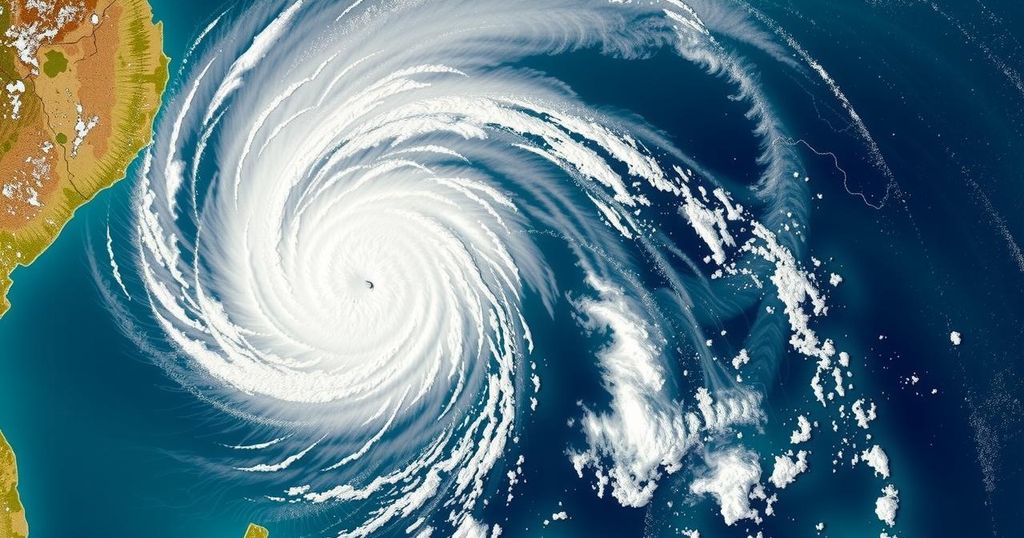Mozambique Faces Humanitarian Urgency Following Tropical Cyclone Chido
Mozambique faces a significant humanitarian crisis in the aftermath of Tropical Cyclone Chido, which has affected over 453,000 people, resulting in 120 deaths and extensive damage to infrastructure. Key areas like Cabo Delgado and Nampula are battling severe challenges, including a cholera outbreak, as humanitarian needs exceed available resources. Immediate support is critical for shelter, food, and health services as the nation navigates recovery efforts amidst existing crises.
Mozambique is grappling with a humanitarian crisis following the catastrophic impact of Tropical Cyclone Chido, which made landfall on December 15, 2024. The cyclone brought excessive rainfall, registering over 250 mm within 24 hours, and winds of up to 120 km/h. As of December 24, an estimated 453,971 individuals have been affected, with reports indicating 120 fatalities and 868 injuries. The widespread destruction includes over 70,000 homes, scores of educational and healthcare facilities, and critical infrastructure.
In Cabo Delgado, where the devastation is particularly acute, approximately 272,000 people have suffered, with entire districts such as Mecufi reporting near-total destruction. Many families were forced to seek refuge in makeshift shelters, and the region’s healthcare services have been severely disrupted. Concurrently, Nampula Province has reported around 175,169 affected individuals, with overwhelming needs exacerbated by a cholera outbreak.
Humanitarian efforts are currently hindered by damaged road networks and poor communication. Local authorities are actively responding, having implemented preemptive evacuations and awareness programs. However, the needs generated by the cyclone surpass available resources. Immediate priorities include provision of safe shelter, food, clean water, medical supplies, and support for agricultural recovery.
The situation is further complicated by an existing humanitarian crisis due to armed conflict, which has displaced individuals seeking refuge from violence. Reports indicate heightened risks of gender-based violence and a need for psychosocial support as communities suffer significant trauma. Urgent funding is essential for sustaining these efforts and addressing the multitude of challenges facing Mozambique at this critical time.
In addition to addressing the direct impacts of Cyclone Chido, humanitarian organizations must remain vigilant against public health threats, especially the cholera outbreak that has already claimed lives. The complexity of the disaster requires immediate and coordinated action to restore stability and aid affected populations as they rebuild their lives.
Tropical Cyclone Chido struck on December 15, 2024, causing catastrophic impacts across multiple provinces in Mozambique, particularly Cabo Delgado and Nampula. The scale of destruction has resulted in significant loss of life, overwhelming displacement, and extensive property damage. With the number of affected individuals exceeding key thresholds for humanitarian intervention, the urgency for support is critical as communities transition from immediate disaster response to a longer-term recovery effort. This cyclone follows a series of prior crises, including droughts and ongoing conflict, complicating the humanitarian landscape.
The aftermath of Tropical Cyclone Chido in Mozambique has culminated in an urgent humanitarian need, necessitating immediate intervention and support from various stakeholders. As thousands of individuals grapple with loss, displacement, and urgent health crises, a coordinated response is essential not only for immediate relief but also for long-term recovery efforts. The convergence of multiple crises places immense pressure on resources, underscoring the need for enhanced funding and strategic planning to aid affected communities in rebuilding their lives.
Original Source: reliefweb.int




Post Comment